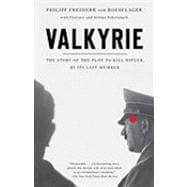
What is included with this book?
| Foreword | p. ix |
| A Taste for Freedom | p. 3 |
| The Time of Choices (1933-36) | p. 12 |
| The Phony War (1939-40) | p. 25 |
| A Dive for Victory (June 9, 1940) | p. 27 |
| A Promise (June 17, 1940) | p. 31 |
| A Lightning Campaign (June-November 1941) | p. 35 |
| A Christmas in Hell (December 1941-January 1942) | p. 46 |
| The Conspiracy Begins (1941-42) | p. 60 |
| An Encounter with the Demon (June 1942) | p. 71 |
| An Incident at the Führer's Headquarters (July 1942) | p. 84 |
| A Poisoned Gift (October 1942) | p. 89 |
| The Tresckow Group (1942-44) | p. 95 |
| When Horses Make Meetings Easier (1943) | p. 105 |
| The Three Failed Attempts (March 1943) | p. 113 |
| Stopping the Barbarians | p. 122 |
| Cavalrymen in Torment | p. 125 |
| The Valise Full of Explosives | p. 140 |
| Obligatory Inactivity | p. 143 |
| The Dangerous Ride (July 1944) | p. 149 |
| A Time for Mourning | p. 163 |
| The Bridge over the Mura (1945) | p. 176 |
| Epilogue | p. 184 |
| Afterword | p. 189 |
| Notes | p. 193 |
| Bibliography | p. 199 |
| Illustration Credits | p. 201 |
| Index | p. 203 |
| Table of Contents provided by Ingram. All Rights Reserved. |
The New copy of this book will include any supplemental materials advertised. Please check the title of the book to determine if it should include any access cards, study guides, lab manuals, CDs, etc.
The Used, Rental and eBook copies of this book are not guaranteed to include any supplemental materials. Typically, only the book itself is included. This is true even if the title states it includes any access cards, study guides, lab manuals, CDs, etc.
Excerpted from Valkyrie: The Story of the Plot to Kill Hitler, by Its Last Member by Philip Freiherr Von Boeselager
All rights reserved by the original copyright owners. Excerpts are provided for display purposes only and may not be reproduced, reprinted or distributed without the written permission of the publisher.